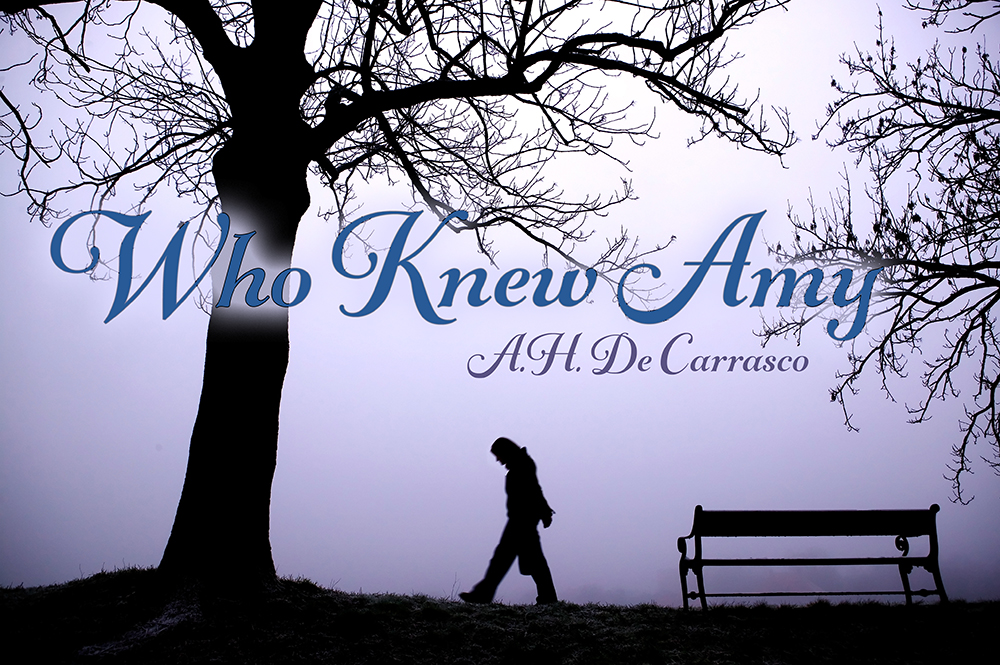
There’s a woman few know exists, but for bank tellers and the insurance sellers—and sending out bills and balances isn’t knowing anyone, really. She was born in Chicago, on the hottest day of the year, to an audience of interns who have since left this world. The first clear thing she heard within the big world was applause, and it made her cry so loudly the doctor slapped her on her bottom just to balance her self-worth. “She’ll be uppity,” warned the doctor.
She grew up in the city, quietly. Her limbs grew fast and stretched long, like a tree’s branches, and she could hide in Crossmun’s Park, pressed tightly against the oak’s bark, and dogs wouldn’t even bother to sniff or mark her.
On a Wednesday field trip, her seventh year, she was forgotten at the arboretum. No one called for her. The janitor found her under the arboretum’s prized corpse flower, her pert nose pinched between her long fingers, her curled body nestled under the big purple bloom above her, which would have made an extraordinary photo for the paper, but no one seemed to notice the novelty of it. She was sent to a state school for the abandoned. Her expression was a bit sullen for a week before relaxing to blankness. She blended in well and was never a bother.
She got a job as a waitress at seventeen and rented a small room near her work—one of six let rooms in a mansion that had seen better days. At this point in her life, a man living in an opposite room on the same wing noticed her and asked her to marry him shortly afterward.
For the first time she felt seen and loved. The bliss of that lasted almost three years. But eventually, she became another piece of furniture in the day-to-day hustle. She was a comfort to his family, his parents and his aunts and uncles, and eventually, to his nieces and nephews, but none could actually tell you what she did all day or even the color of her eyes.
Having tasted love, a yearning in her heart tugged where love had once bloomed, and this made her more aware of herself than in all her years prior to love’s fleeing. In fact, it took her years to smother that need, that enthusiasm that always ended with a little let down, a prickling hurt, a feeling of worthlessness. She replaced her painful reality with a game of pretend. In her home, she pretended to be a nurse, a psychiatrist, a maid, or a prostitute.
She kept her mind small. She kept her heart secret, like the child she had been, dancing that night under the arboretum’s canopy, free where no one noticed her because she chose to hide—which made it all a little easier. But sometimes the whole thing made her a little bitter, too.
On vacation with the family, she picked an almost random place—one with a fountain in its name, because she liked the sound of it. She picked that spot just to see what would happen if she asked to have lunch there. Every day, she mentioned it, how she would like to go for lunch to the place with the fountain in its name, but of course, no one bothered. And every vacation afterward, she played that same game as a little reminder of how little she mattered—and how glorious that could be. She began to spend vacations in bed, listening to the sea from her window while others earned sunburns for sprawling sloppily on the white sands. She liked the softness of the sheets. She liked the dreams dreamt snuggled under them, even if the rental smelled like kibble.
She was half convinced she was invisible anyway. In fact, her husband once walked past her without even realizing she was there. She called to him, and he turned around and gave her a broad smile then stumbled backward, stammering, “Oh, my… it’s you.” She had bought a new scarf that day and it was wrapped around her head at the time. Equally flustered, she pulled the red silk from her head. “Of course, it is me, dear,” she said, but he had already turned from her and continued his stroll as if he had never seen her. She took a bus home.
She gave him other opportunities. One holiday, she mentioned a nice rodízio that offered her husband’s favorite meats. Another holiday, she suggested a park because the nieces and nephews loved to play on soft grass. And, of course, once she mentioned a musical, for his mother often loved to sing from her seat. Each time she watched her acquired family circumvent all places stubbornly, and she lost her love for those people gradually until the ones that hinged her in place were no more, and she did not think of them again, either.
In her later years, she visited many places by herself and started conversations with herself about them, always learning something new, something delightful. But she did not share with another soul; she had forgotten how to. And she would be forgotten if not for me, I suppose.
I watched her at a distance, at first, but eventually near her, and I heard her stories the same, though she muttered them to herself. She was too far removed to reach. But she was also happy. While I was sad for her. So, I tell you about her today, a woman the world of people ignored and who learned to ignore the flesh-bags occupying space in return.
I give Jesus 5000 years before he’s forgotten—10,000 tops. Buddha said it is inevitable that the dharma fades, that our holy books and our temples shall crumble. It seems plausible to me. Take the CD. Once, we placed everything on CDs, and few use CDs anymore, despite their high fidelity, and presently, we put all that up in the cloud, but eventually it’s going to rain.
But now you know about Amy. I tell you this so that she is remembered, at least until I am forgotten, too.
*****
copyright 2019 by A. H. De Carrasco. All rights reserved. Stock image used from Depositphotos, Inc., SimpleFoto
Special thanks to Hot Tree Editing for proofing this story.
Special thanks to my tuxedo cat for just being a big ball of trouble.




